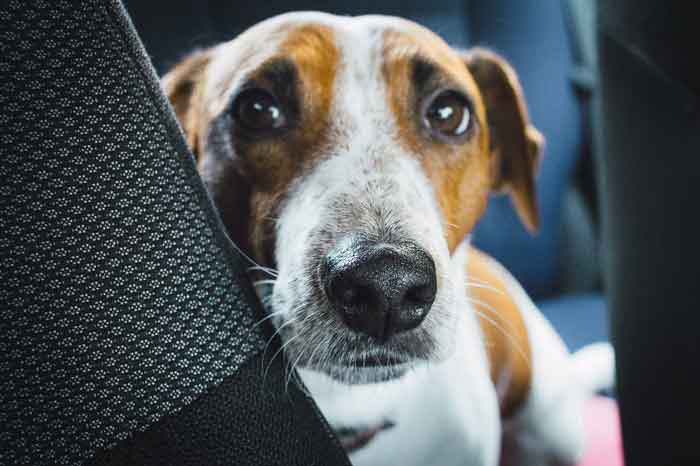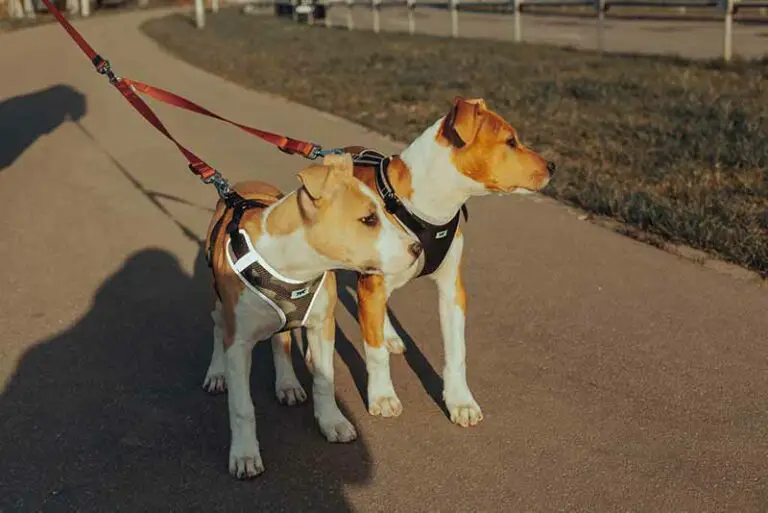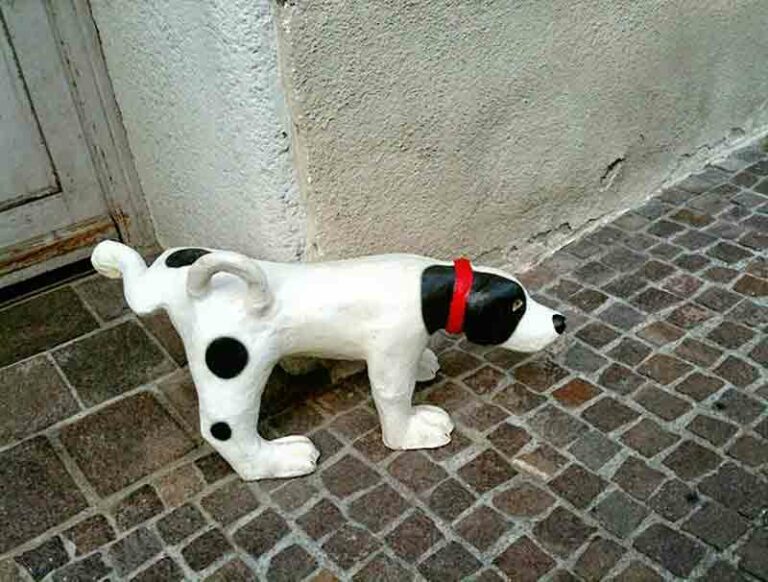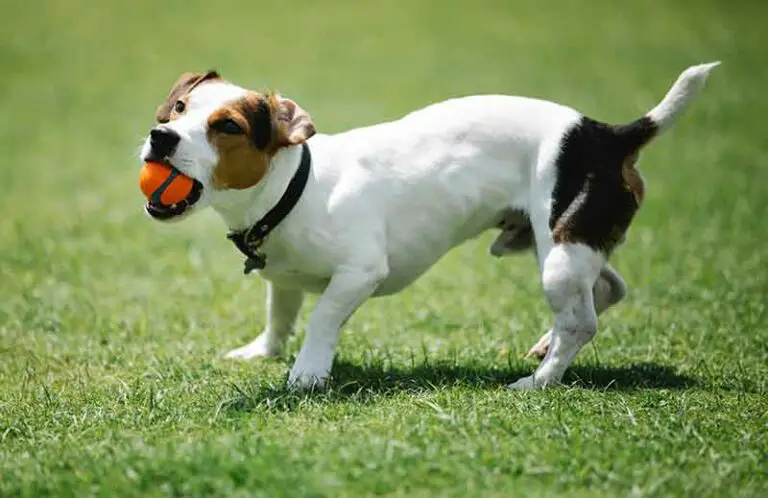10 Obvious Jack Russell Old Age Problems [100% For Seniors]
As your beloved Jack Russell Terrier begins to enter their golden years, it’s important to be aware of the common health issues that may arise during this stage of their life. From joint stiffness to dental problems and vision impairment, older Jack Russell Terriers are prone to certain age-related ailments that may require special attention and care. By understanding and addressing these common health issues, you can ensure that your furry companion enjoys a happy and comfortable life in their senior years.
Joint and Mobility Issues
As your beloved Jack Russell Terrier gets older, they may experience a range of joint and mobility issues that can affect their quality of life. One common condition seen in older dogs is arthritis. Arthritis is the inflammation of the joints, resulting in pain, stiffness, and difficulty moving. This condition can make it challenging for your furry companion to engage in their usual activities, such as going for walks or playing fetch. However, with the right care, such as providing joint supplements and offering low-impact exercises, you can help alleviate their discomfort and keep them active for longer.
Another joint issue that can affect older Jack Russell Terriers is hip dysplasia. Hip dysplasia occurs when the hip joint doesn’t develop properly, leading to instability and limited mobility. This condition can cause pain, lameness, and difficulty in getting up and down. It’s important to be mindful of your pet’s weight, as excess weight can exacerbate the symptoms of hip dysplasia. Consult with your veterinarian for advice on managing this condition, which may include medication, therapeutic exercises, and even surgical options in severe cases.
Patellar luxation is yet another joint problem that commonly affects older Jack Russell Terriers. This condition occurs when the kneecap dislocates from its normal position. Signs of patellar luxation can include limping, skipping, or holding the leg up altogether. Mild cases may not require surgery, but severe cases may necessitate surgical intervention to correct the issue. Regular check-ups with your veterinarian and providing a safe environment for your aging Jack Russell Terrier can help minimize the risk of joint and mobility issues.
Eye Problems
As your faithful companion ages, their eyes may become more susceptible to various issues. Cataracts are a typical eye problem found in older Jack Russell Terriers. Cataracts cause cloudiness or opacity in the lens of the eye, leading to impaired vision. While surgery can be an option for severe cataracts, many dogs can live comfortably with mild to moderate cases. Regular check-ups with an ophthalmologist can help monitor the progression of this condition.
Another eye condition that can affect aging Jack Russell Terriers is glaucoma. Glaucoma occurs when there is increased pressure within the eye, leading to damage to the optic nerve and subsequent vision loss. Symptoms of glaucoma can include redness, pain, and a cloudy appearance in the affected eye. Immediate veterinary attention is essential to manage glaucoma effectively, as it can progress rapidly and cause irreversible damage if left untreated.
Progressive retinal atrophy (PRA) is a hereditary eye disease that affects several breeds, including the Jack Russell Terrier. PRA slowly deteriorates the cells in the retina, leading to progressive vision loss and eventual blindness. While there is no cure for PRA, early detection through regular eye exams can help manage the condition and slow down its progression. Although your furry friend may experience vision loss over time, they can still lead a fulfilling life with the help of your love and support.
Dental Issues
Maintaining good oral hygiene is crucial for the overall health and well-being of your aging Jack Russell Terrier. As dogs age, they become more susceptible to dental issues such as periodontal disease. Periodontal disease is a bacterial infection that affects the tissues surrounding the teeth, leading to gum inflammation, tooth loss, and potential systemic health problems. To prevent or manage periodontal disease, regular dental check-ups, professional cleanings, and daily teeth brushing are essential.
Tooth loss is a common dental issue seen in older Jack Russell Terriers. As your furry friend ages, their teeth may become weaker and more prone to decay, leading to tooth loss. Missing teeth can affect their ability to chew food properly, impacting their nutrition and overall health. Regular dental care, including regular dental cleanings and addressing any dental problems promptly, can help minimize the risk of tooth loss and ensure your pup’s continued comfort.
Gingivitis is another dental problem that can affect your aging Jack Russell Terrier. Gingivitis is characterized by inflammation of the gums, resulting in redness, swelling, and even bleeding. Poor dental hygiene, such as a lack of regular teeth cleaning, can contribute to the development of gingivitis. Ensuring your furry friend has regular dental examinations and maintaining good oral care at home, including brushing their teeth and providing dental chews, is vital to prevent and manage gingivitis.
Digestive Problems
As your Jack Russell Terrier ages, they may be more prone to various digestive issues that can impact their well-being. Constipation is one common digestive problem seen in older dogs. It occurs when there is difficulty or infrequency in passing stools. This can be caused by factors such as decreased physical activity, dietary changes, or certain medical conditions. Ensuring your furry companion remains well-hydrated, maintaining a fiber-rich diet, and incorporating regular exercise can help prevent and manage constipation.
Inflammatory bowel disease (IBD) is another digestive problem that can affect aging dogs, including Jack Russell Terriers. IBD is the inflammation of the gastrointestinal tract, leading to symptoms such as chronic diarrhea, vomiting, and weight loss. Proper diagnosis and treatment by a veterinarian are essential to manage IBD effectively. Treatment often includes dietary modifications, medication, and regular monitoring to ensure your pup’s digestive system remains healthy.
Pancreatitis is a condition characterized by inflammation of the pancreas. Symptoms of pancreatitis in dogs can include abdominal pain, vomiting, and decreased appetite. Older Jack Russell Terriers may be more prone to developing pancreatitis due to various factors, including dietary indiscretions and obesity. Treatment typically involves a combination of medications, a low-fat diet, and close monitoring to prevent complications. Maintaining a healthy weight, feeding a balanced diet, and avoiding high-fat foods can help reduce the risk of pancreatitis.
Cognitive Decline
As your faithful companion enters their golden years, it’s essential to be aware of the potential cognitive changes they may experience. Canine cognitive dysfunction (CCD), often referred to as doggy dementia, is a condition that affects older dogs’ cognitive abilities. Signs of CCD can include confusion, disorientation, changes in sleep patterns, and altered behavior. While there is no cure for CCD, there are management strategies that can help improve your furry friend’s quality of life. Environmental enrichment, mental stimulation, and a consistent routine can all contribute to their overall well-being.
Memory loss is another common cognitive issue seen in aging Jack Russell Terriers. Just like humans, dogs can experience memory decline as they age. Your furry friend may struggle to remember familiar faces or places, leading to increased anxiety or restlessness. It’s important to be patient and support them through this process, providing a familiar and secure environment. Maintaining a consistent routine and offering mental stimulation through interactive toys or puzzle games can help stimulate their memory and cognitive function.
Confusion can be a distressing symptom that older Jack Russell Terriers may exhibit as they age. Your furry companion may become disoriented or exhibit behaviors that seem out of character. Creating a safe and secure environment, ensuring they have easy access to familiar places, and maintaining a regular schedule can help minimize confusion. Regular check-ups with your veterinarian can also help identify any underlying health issues that may contribute to confusion and allow for appropriate treatment and management.
Skin Conditions
Skin conditions can become more prevalent as your faithful companion reaches their senior years. Allergies, both environmental and food-related, can cause itchy and inflamed skin. Identifying and avoiding potential allergens, such as certain foods or environmental triggers, can help manage allergies and alleviate your pup’s discomfort. Regular grooming, including bathing with hypoallergenic shampoos and brushing their coat, can also contribute to maintaining healthy skin.
Dry skin is another common skin problem seen in aging Jack Russell Terriers. As your furry friend ages, their skin may become drier, leading to itchiness and flakiness. Ensuring they have a balanced diet rich in omega-3 fatty acids and providing proper hydration can help combat dry skin. Regular moisturizing with pet-friendly moisturizers or coconut oil can also relieve discomfort and keep their skin in optimal condition.
Hot spots, also known as acute moist dermatitis, can be a bothersome skin condition for aging Jack Russell Terriers. Hot spots are areas of inflamed and infected skin that are often caused by excessive licking, scratching, or irritation. Proper wound care, which may include cleaning the affected area, applying a pet-safe antiseptic, and preventing further licking or scratching, can help hot spots heal promptly. Identifying and addressing the underlying cause, such as allergies or fleas, is also crucial to prevent recurrent hot spots.
Heart and Cardiovascular Issues
As your furry friend reaches their golden years, it’s important to be mindful of potential heart and cardiovascular issues that can arise. Heart murmurs, which are abnormal heart sounds, can be detected during routine veterinary examinations. Heart murmurs in older Jack Russell Terriers may be a sign of an underlying heart condition. Regular cardiovascular check-ups, including echocardiograms and blood pressure monitoring, can help assess the health of your pet’s heart and ensure timely intervention if necessary.
Congestive heart failure (CHF) is a progressive condition that can affect senior Jack Russell Terriers. CHF occurs when the heart can no longer pump efficiently, leading to fluid accumulation in the lungs or abdomen. Symptoms of CHF can include coughing, difficulty breathing, and lethargy. Prompt diagnosis and treatment, which may include medication to manage the condition and lifestyle modifications, can help improve your pet’s comfort and quality of life.
Hypertension, or high blood pressure, is another cardiovascular issue that older Jack Russell Terriers may face. Hypertension can result in the impairment of various organs, such as the kidneys and eyes. Regular blood pressure monitoring, along with potential medication and dietary modifications, can help manage hypertension and reduce the risk of complications. Providing a low-sodium diet, ensuring regular exercise, and managing stress levels are all important factors in maintaining a healthy blood pressure.
Urinary Problems
As your furry friend ages, they may be more susceptible to urinary problems that can impact their comfort and overall well-being. Urinary incontinence is a common issue seen in older Jack Russell Terriers. It can be caused by a variety of factors, including weakened bladder muscles or hormonal changes. Ensure your pet has easy access to regular bathroom breaks and consult with your veterinarian for potential treatment options, such as medication or dietary adjustments, to manage urinary incontinence effectively.
Bladder stones can also be a concern for aging Jack Russell Terriers. These stones can cause discomfort, urinary blockages, or recurrent urinary tract infections. Dietary modifications, such as a prescription diet tailored to prevent stone formation, can help manage bladder stones. Surgical intervention may be necessary in severe cases to remove or dissolve the stones and prevent further complications.
Urinary tract infections (UTIs) can occur in older Jack Russell Terriers due to various reasons, including a weaker immune system or changes in urinary tract function. Symptoms of UTIs can include frequent urination, urgency, and blood in the urine. Prompt veterinary attention, which may involve urine testing and antibiotic treatment, is crucial to manage UTIs effectively and prevent complications. Maintaining good hygiene, providing fresh water, and promoting regular urination can help reduce the risk of UTIs.
Weight Management
As your loyal companion enters their golden years, weight management becomes increasingly important for their overall health and vitality. Obesity is a common issue seen in older dogs, including Jack Russell Terriers. Excess weight can put additional strain on their joints and organs, exacerbating existing health conditions and reducing their quality of life. Maintaining a balanced diet, portion control, regular exercise, and consulting with your veterinarian can help manage their weight effectively.
On the other hand, weight loss can also be a concern for elderly Jack Russell Terriers. Various factors, such as dental issues, underlying medical conditions, or decreased appetite, can contribute to unintentional weight loss. Regular veterinary check-ups, investigations to identify any underlying causes, and appropriate treatment can help address weight loss in your furry friend. Ensuring they have an easily digestible, nutrient-rich diet and monitoring their food intake can also help maintain optimal weight and muscle mass.
Muscle loss, often referred to as muscle wasting or sarcopenia, can be a consequence of aging in Jack Russell Terriers. Muscle loss can negatively impact their mobility, strength, and overall well-being. Regular exercise that includes both aerobic activities and strength training, under the supervision of your veterinarian, can help maintain muscle mass and promote joint health. Adequate protein intake, as well as providing joint supplements, can also support muscle preservation in your aging Jack Russell Terrier.
Ear Infections
Ear infections can be a bothersome issue that affects the well-being of your aging Jack Russell Terrier. Otitis externa, or inflammation of the external ear canal, is a common ear infection seen in dogs. Symptoms can include itching, redness, discharge, and an unpleasant odor. Routine ear cleaning with veterinarian-approved products, drying the ears thoroughly after bathing or swimming, and regular examination can help prevent and manage otitis externa.
Ear mites are another common culprit behind ear infections in dogs, including aging Jack Russell Terriers. These tiny parasites can cause irritation, itching, and ear inflammation. Regular ear examinations and prompt treatment, as recommended by your veterinarian, can help eliminate ear mites and prevent secondary infections. Keeping your furry friend’s environment clean and preventing contact with infested animals can also minimize the risk of ear mite infestations.
Yeast infections can also affect the ears of aging Jack Russell Terriers. These infections can develop when there is an overgrowth of yeast in the ears, leading to inflammation, itching, and discomfort. Maintaining good ear hygiene, such as regular cleaning with appropriate ear cleaners, and addressing any underlying causes, such as allergies or hormonal imbalances, can help prevent and manage yeast infections. Consult with your veterinarian for personalized recommendations and treatments tailored to your pet’s specific needs.
By providing the necessary care, attention, and regular veterinary check-ups, you can help manage and alleviate the common health issues that may arise as your beloved Jack Russell Terrier enters their golden years. Remember, your furry companion relies on your love and support to navigate their senior years with grace, comfort, and happiness.








